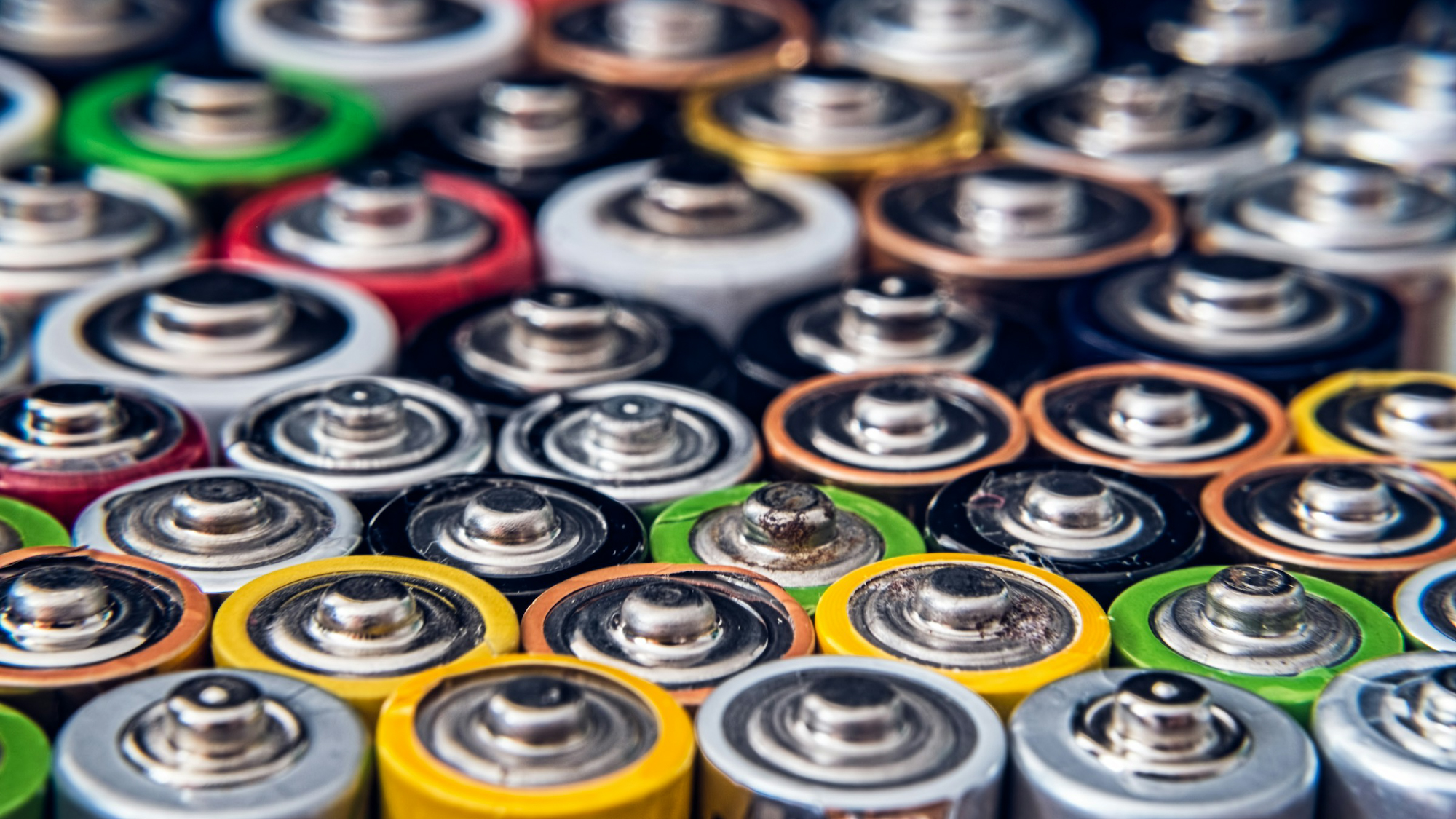Mało jest zaawansowanych technologicznie branż, w których Polska jest jednym z czołowych producentów. Do takich niewątpliwie należy produkcja baterii litowo-jonowych, która szeroko zainstalowała się nad Wisłą. Oczywiście nie zajmują się tym przedsiębiorstwa o polskim rodowodzie, tylko koreańskie, nordyckie czy zachodnioeuropejskie, ale dają tutaj dobrze płatną pracę, zlecenia dla podwykonawców, umożliwiają rozlewanie się wiedzy i doświadczenia oraz poprawiają bilans handlowy. Lepsza szwedzka fabryka akumulatorów niż żadna.
Jedną z najbardziej łamiących wiadomości ostatnich tygodni była ta, że ten cenny kawałek produkcji przemysłowej w jakiejś części utracimy. Przygotowywane przez KE akty wykonawcze do unijnego rozporządzenia bateryjnego mogą zawierać przepisy wyjątkowo niewygodne dla krajów z energetyką opartą na węglu. Czyli głównie Polski. Konieczny do wykazania ślad węglowy wytwarzanych akumulatorów musiałby opierać się nie na źródłach energii danej fabryki, lecz na miksie energetycznym całego kraju. Wieść niesie, że taki pomysł został podrzucony KE przez Francję, która ma mieć chrapkę na fabryki ulokowane w Polsce. Nawet jeśli to prawda, to do ich przejęcia daleka droga.
Zaczęło się w zeszłym roku, gdy uchwalono tak zwane rozporządzenie bateryjne, które reguluje nie tylko produkcję, ale też eksploatację i utylizację. Rozporządzenie stosuje się więc nie tylko do baterii litowo-jonowych, wykorzystywanych szeroko w elektromobilności, ale też wszystkich pozostałych – w tym zwykłych „paluszków”. Akt ten nakłada na podmioty wprowadzające baterie do obrotu szereg nowych zobowiązań, wśród których raportowanie śladu węglowego jest tylko jednym z wielu i to niekoniecznie najważniejszym.
Producenci zostali przede wszystkim zobowiązani do ograniczenia stosowania szkodliwych pierwiastków, takich jak ołów czy rtęć, oraz dostosowania się do przepisów regulujących udział metali rzadkich, takich jak lit czy nikiel. Baterie muszą mieć również odpowiednią trwałość.
Wreszcie, producenci będą musieli wykazywać ślad węglowy powstałych baterii. W przypadku akumulatorów litowo-jonowych obowiązek ten powstanie w lutym przyszłego roku. Ślad węglowy będzie wykazywany jako ilość CO2 w przeliczeniu na kWh energii zapewnianej przez baterię. Jak dokładnie będzie obliczany, to zostanie określone w aktach wykonawczych, które przygotuje Komisja Europejska. Lub też najlepiej lobbujące państwa, do których Polska, jak wiadomo, nie należy.
Początkowo ślad węglowy baterii miał być określany na podstawie źródeł energii czerpanych przez daną fabrykę, co było dosyć sensowne. Obecnie na stole ma jednak leżeć koncepcja inna – ślad węglowy miałby być określany na podstawie miksu energetycznego kraju, w którym baterie są wytwarzane. Na oko widać, że jest to rozwiązanie grubymi nićmi szyte i z góry ustawione pod czyjeś konkretne interesy. Dlaczego położona na zachodzie lub północy Polski fabryka, czerpiąca energię w większości z OZE albo importu, ma być obarczona śladem węglowym całej Polski? Oczywiście na siłę da się to wytłumaczyć – przecież produkcja to jest cały cykl, nie można jej sprowadzać tylko do tego, co dzieje się w fabryce. Jest jeszcze transport, logistyka, no i przede wszystkim praca lokalnych podwykonawców. Równie dobrze można jednak argumentować, że unijna energetyka to system naczyń połączonych, transgraniczne przepływy prądu mają miejsce nieustannie, więc położona na północy Polski fabryka może czerpać więcej energii z niezwykle nisko emisyjnej Szwecji niż z polskich elektrowni węglowych.
Sprawa jest poważna przede wszystkim dlatego, że rozmawiamy o jednej z najważniejszych dla polskiego eksportu branż. Pod względem potencjału produkcyjnego baterii litowo-jonowych zajmujemy prawdopodobnie drugie miejsce na świecie, za Chinami, które odsadzają całą stawkę o lata świetlne. Potencjał fabryk ulokowanych w Polsce to produkcja 73 Gigawatogodzin rocznie, tymczasem Chin aż 893 Gwh. Znajdujące się w czołówce USA mają potencjał niemal identyczny, jak Polska (70 Gwh), a pozostałe kraje wyraźnie już odstają.
Przede wszystkim produkcja baterii przynosi Polsce naprawdę dużo pieniędzy. W latach 2017-2022 wartość eksportu akumulatorów litowo-jonowych wzrosła z miliarda złotych do 38 mld zł. Tym samym branża odpowiada za 2,5 proc. polskiego eksportu. Oczywiście zyski trafiają do przedsiębiorstw z kapitałem zagranicznym, takich jak szwedzki Northvolk, posiadający zakład w Gdańsku, czy koreański LG Energy, mający ogromną fabrykę we Wrocławiu. Dotychczasowe doświadczenia pokazują jednak, że duża część zysków zagranicznych korporacji zostaje w Polsce jako reinwestycje. Poza tym zapewniają one bardzo dobrze płatne miejsca pracy oraz zlecenia dla podwykonawców – a przy okazji rozlewanie się tak zwanego know-how.
Można więc sobie wyobrazić, że jedno z wiodących w UE państw ma chrapkę na przejęcie przynajmniej części tego potencjału. Wszystko logicznie się spina – Francja ma jeden z najmniej węglowych miksów energetycznych w UE, a Polska najbardziej. Paryż mógłby więc wykorzystać tę oczywistą przewagę dla własnych interesów. Z solidarnością europejską miałoby to niewiele wspólnego, pewnie zaszkodziłoby nastrojom prointegracyjnym w Polsce, ale chyba oczywiste jest, że Francja i Niemcy są federalistyczne głównie deklaratywnie. Gdy pojawia się możliwość zapewnienia profitów swoim środowiskom biznesowym, zawsze chętnie kopną słabszego.
Hipokryzja dwóch największych krajów UE to jedno, ale drugie to nieustanna indolencja polskich władz, które nie potrafią wyrwać Polski ze ścisku energetyki węglowej. Przypomnijmy, że system EU-ETS (uprawnienia do emisji CO2) został wprowadzony w 2005 roku. Od tamtego czasu unijna polityka klimatyczna była mniej lub bardziej lekceważona przez kolejne polskie rządy. Ceny uprawnień do emisji były początkowo tanie jak barszcz – kosztowały ledwie kilka euro – więc nikt się tym nie przejmował. Gdy skoczyły do kilkudziesięciu euro, w Polsce nastało wielkie zdziwienie. Teraz czeka nas objęcie tym systemem nie tylko przemysłu i energetyki, ale też transportu i budownictwa. A jak widać na przykładzie produkcji baterii, wysoka emisyjność może obniżać konkurencyjność także na inne sposoby.
Oczywiście nie było tak, że nic w tym czasie nie robiono – po prostu robiono zdecydowanie zbyt wolno. W zeszłym roku polski miks energetyczny był najbardziej zielony w historii. Określenie „zielony” należy jednak brać w cudzysłów. Miks ten był po prostu mniej brązowy. Węgiel kamienny i brunatny odpowiadały łącznie za ponad 60 proc. produkcji prądu nad Wisłą. Udział OZE okazał się rekordowy i wyniósł 27 proc., dzięki czemu odnawialne źródła energii wyprzedziły węgiel brunatny. Kamienny wciąż trzyma się jednak mocno. Jedną dziesiątą prądu wytworzyliśmy z gazu, co również było najwyższym wynikiem w historii. Co ciekawe, wśród OZE prym wiodły lądowe farmy wiatrowe. Jak widać, feralna ustawa wiatrakowa nie zdusiła tego segmentu energetyki.
Jest więc połowa trzeciej dekady XXI wieku, a Polska stoi na energetyce węglowej niczym w PRL. Dwie trzecie udziału węgla w miksie musimy uznawać za niebywały sukces. Tymczasem państwa UE są już w zupełnie innym miejscu. Według danych Eurostatu, w 2022 roku węgiel odpowiadał za 40 proc. dostępnej energii w Polsce. Daleko za nami znalazły się Bułgaria i Czechy (po ok. 30 proc.), jeszcze dalej Niemcy (20 proc.), a w pozostałych państwach członkowskich udział węgla był marginalny.
Nawet obliczanie śladu węglowego baterii na podstawie domniemanej propozycji francuskiej jeszcze niczego przesądza. Kluczowe będzie to, do czego ten ślad będzie wykorzystywany. Jeśli w przyszłości na jego podstawie będzie określany jakiś podatek, to konkurencyjność polskich fabryk spadnie, nowe nie będą powstawać, a być może któraś z istniejących nawet się wyniesie. Mówi się jednak również o wprowadzeniu maksymalnych norm. Gdyby zostały one określone na poziomie wyższym od możliwości Polski, to byłaby prawdziwa katastrofa, bo fabryki te musiałyby się zacząć zawijać. To jednak wciąż teoria – na razie mowa jest o określeniu sposobu raportowania śladu węglowego.
Najczarniejszy scenariusz jest trudny do wyobrażenia. Brukseli nie zależy na niszczeniu całej branży w jednym z największych krajów członkowskich. Bardziej subtelne ograniczanie konkurencyjności Polski jest jednak całkiem możliwe. Szkoda tylko, że tę możliwość dostarczyliśmy sami, lekceważąc przez dwie dekady unijną politykę klimatyczną.

 Wspieraj
Wspieraj 

 Wspieraj
Wspieraj  Wydawnictwo
Wydawnictwo 
 Zaloguj się
Zaloguj się 















